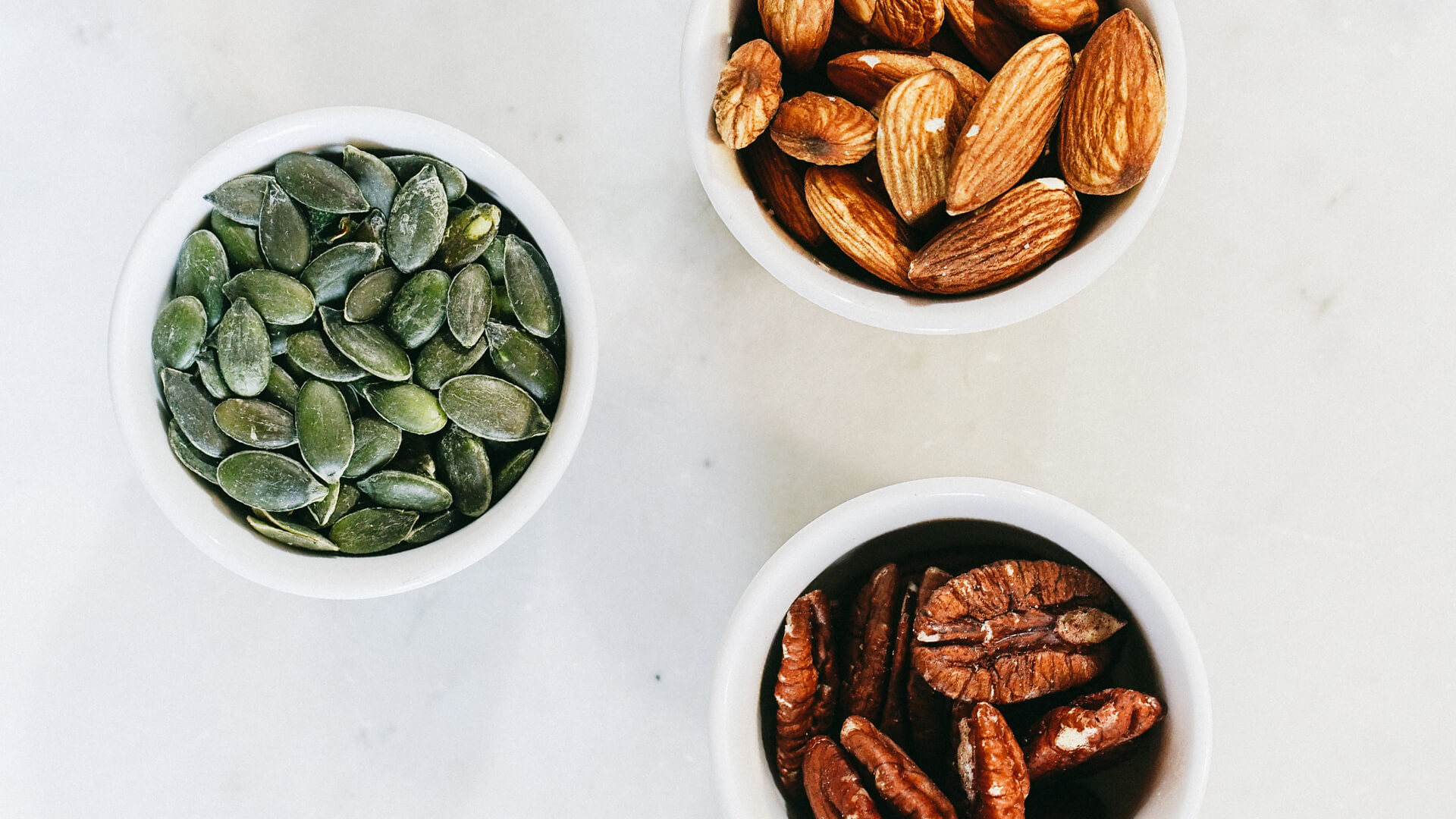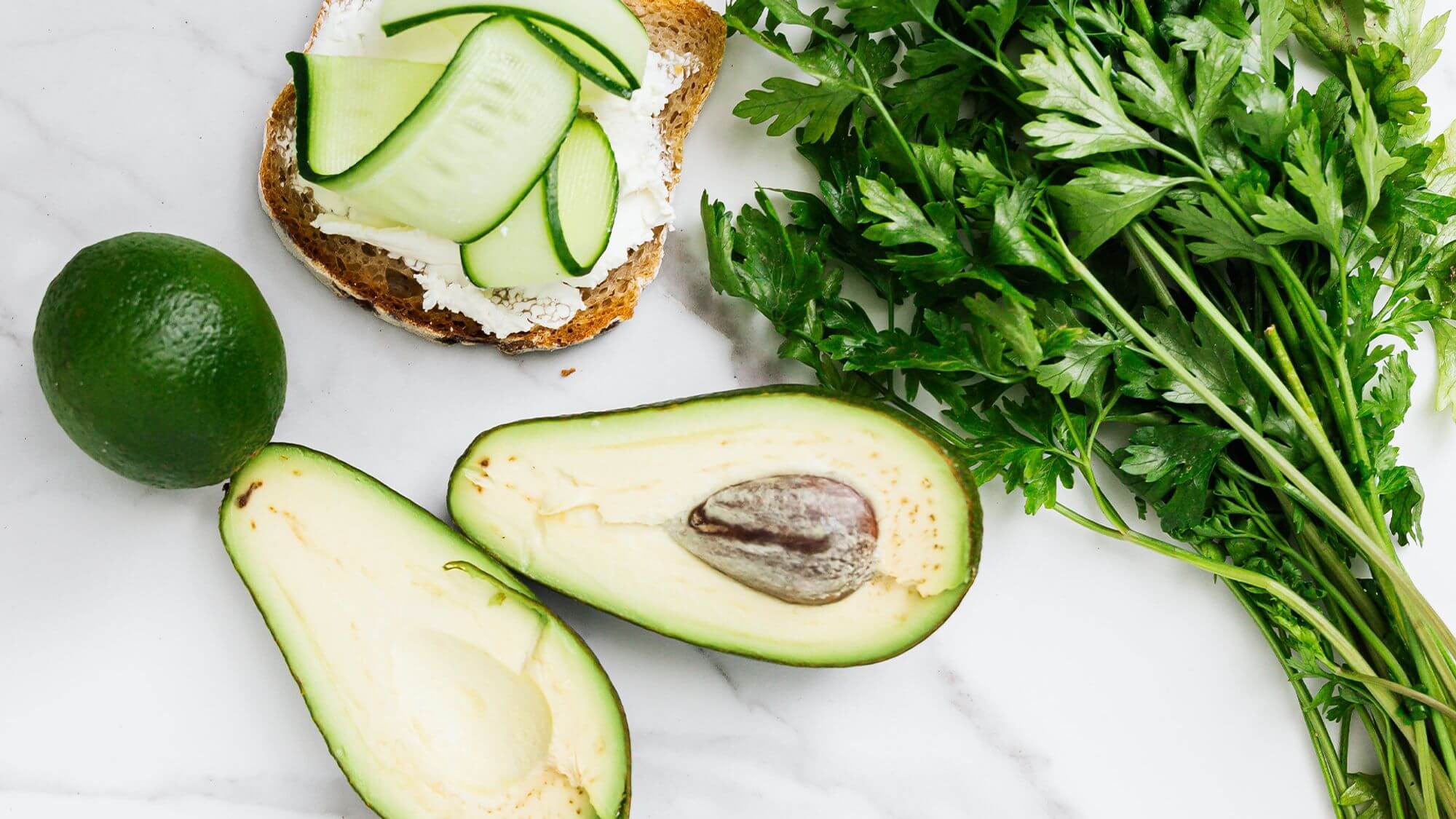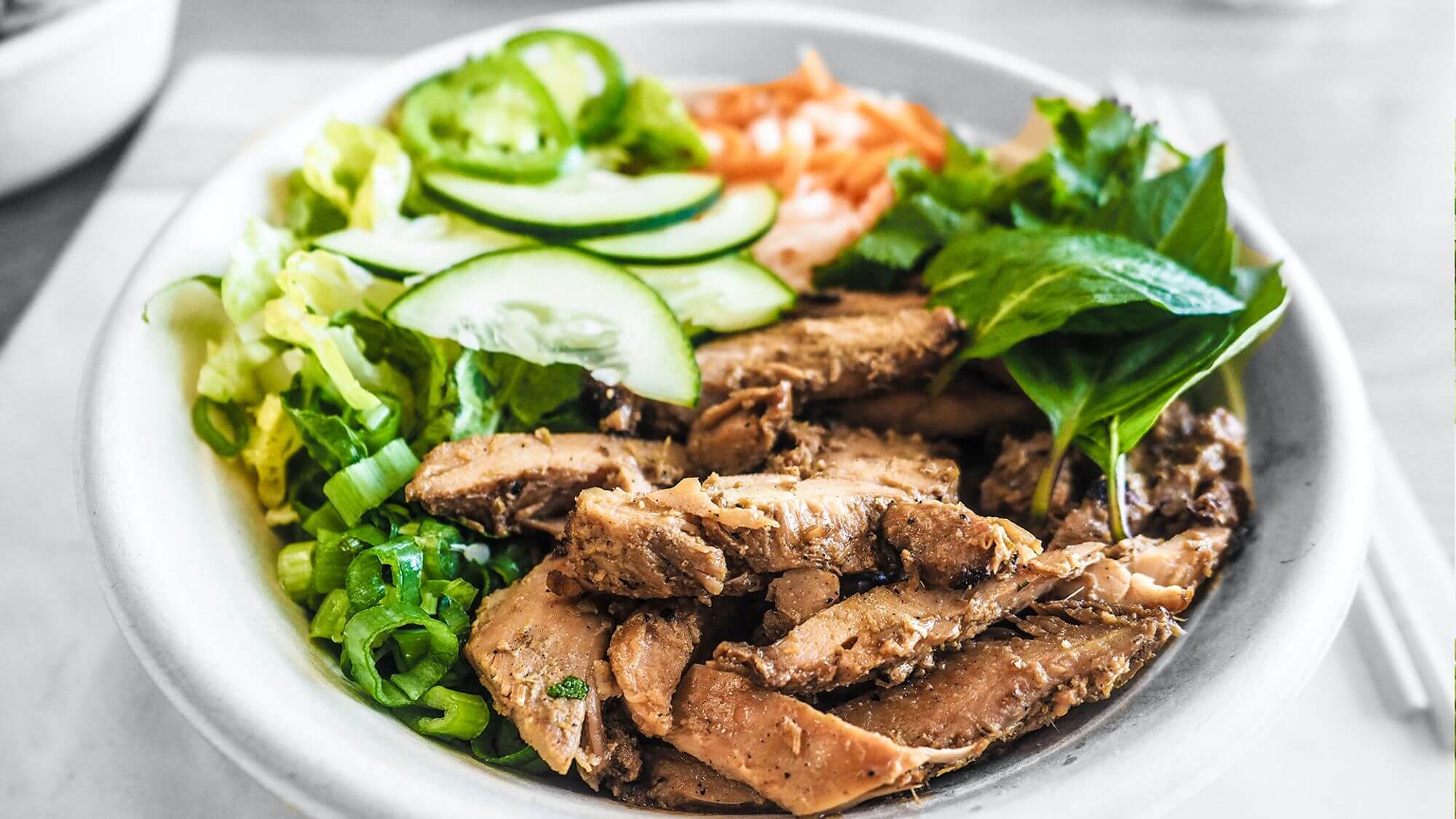Muscle growth does not happen by training alone. Getting the right mix of protein, carbs, and healthy fats is what keeps muscles growing and recovering on track. Protein repairs and builds muscle, carbohydrates restore energy after tough workouts, and healthy fats support overall strength and endurance.
A daily intake of 1.4 to 2 grams of protein per kilogram of body weight gives muscles the nutrients they need to repair, grow, and stay strong after every workout. That means getting enough quality protein in every meal is just as important as showing up at the gym.
This 7-day meal prep for muscle gain lays out a structured, high-protein plan to help you stay on track without spending hours cooking every day. Whether you're looking for meal prep ideas for muscle gain or a complete muscle food meal prep strategy, this plan will make eating for muscle growth a piece of cake.
Why Nutrition Is Critical for Muscle Gain
Lifting weights breaks muscle fibres down, but proper nutrition is what helps them rebuild stronger, with every meal playing a role in muscle recovery, energy levels, and growth. The right combination of protein, carbohydrates, healthy fats, and essential micronutrients ensures muscles have everything they need to repair and grow after training.
Protein
Muscle growth cannot happen without protein. The building block of muscles, protein provides the amino acids needed for muscle protein synthesis (the process that repairs and builds new muscle fibres).
Experts recommend consuming at least 1.4 to 2 grams of protein per kilogram of body weight to fully support muscle recovery and development.
Carbohydrates
Carbs provide energy and are essential for replenishing glycogen stores after intense workouts. Without enough carbohydrates, tired muscles struggle to recover properly, which can lead to fatigue and slower progress.
Whole grains, fruits, and starchy vegetables provide a steady energy source, ensuring strength levels stay high and recovery is optimised.
Healthy Fats
Healthy fats keep you full and support hormone production, such as testosterone, which is essential for building strength.
Omega-3 fatty acids found in foods like salmon, flaxseeds, and more help reduce inflammation after tough workouts and keep joints moving smoothly.
Including healthy fats in meals ensures the body can recover efficiently between training sessions while keeping you feeling strong and energised.
Micronutrients and Hydration
Vitamins and minerals, such as vitamin D, magnesium, and zinc, contribute to muscle function, recovery, and performance. A structured meal plan packed with the proper nutrients is just as crucial as the workouts themselves.
Staying hydrated is just as important—muscles are nearly 75% water, and dehydration can lead to cramps, fatigue, and slower recovery. Drinking enough water and eating water-rich foods like cucumbers and berries keeps muscles working at their best.
Foods to Include in a Muscle Gain Meal Plan
Muscle growth starts with eating the right foods in the right amounts. However, that doesn't necessarily mean changing your entire diet. Focus on high-protein meals, quality carbs, and healthy fats to fuel strength and recovery instead. Here are some foods that you don't want to skimp on:
High-Protein Sources
- - Lean meats: Chicken breast, turkey, and lean cuts of beef provide high-quality protein with minimal fat.
- - Fish: Salmon, cod, herring, and mackerel provide plenty of protein along with beneficial omega-3 fatty acids to support muscle recovery and reduce inflammation.
- - Dairy products: Greek yoghurt, cottage cheese, and low-fat milk supply protein and calcium, which are essential for muscle function.
- - Plant-based proteins: Lentils, chickpeas, black beans, and tofu are valuable protein sources, especially for vegetarians and vegans.
Complex Carbohydrates
- - Whole grains: Connected to greater muscle function in older adults, whole grains, such as brown rice, quinoa, oats, and whole-grain breads, increase protein synthesis in muscle cells and provide sustained energy and fibre.
- - Starchy vegetables: Sweet potatoes, butternut squash, and legumes contain complex carbs and essential nutrients.
Healthy Fats
- - Avocados: Creamy, nutrient-packed, and full of heart-healthy monounsaturated fats, avocados keep hormones balanced and muscles powered.
- - Nuts and seeds: Packed with protein and healthy fats, almonds, chia seeds, pumpkin seeds, and walnuts help you meet the daily protein requirement for muscle gain and support muscle recovery.
- - Olive oil: A staple in Mediterranean diets, olive oil is high in monounsaturated fats, which are beneficial for heart health and inflammation reduction. In fact, people who use more than 1/2 tablespoon of olive oil daily have a 19% lower risk of death from heart disease.
Vegetables and Micronutrients
- - Leafy greens: Spinach, kale, watercress, and Swiss chard are rich in vitamins A, C, and K, as well as iron.
- - Colourful vegetables: The most vibrantly coloured fruits and vegetables, like bell peppers and carrots, are often the richest in vitamins, minerals, and antioxidants.
- - Berries: Blueberries, strawberries, blackberries, and raspberries are high in antioxidants, which support recovery.
Foods to Limit or Avoid
- - Alcohol: Excessive alcohol consumption can impair muscle growth and recovery.
- - Added sugars: Foods high in added sugars, such as candies, pastries, and sugary drinks, offer little nutritional value and can lead to fat gain.
- - Deep-fried foods: Often high in unhealthy fats, these can contribute to inflammation and do not support muscle-building goals.

Frive’s Firecracker Chicken Thighs packed full with 39g of protein
7-Day Meal Prep for Muscle Gain
Eating for muscle gain does not have to be complicated. This 7-day meal prep for muscle gain has plenty of variety, with lean meats, whole grains, and nutrient-packed vegetables to keep things interesting while ensuring your body gets everything it needs to build strength and perform at its best.
Day 1
- - Breakfast: Scrambled eggs with whole-grain toast, avocado, and sauteed spinach
- - Snack: Greek yoghurt with mixed nuts and berries
- - Lunch: Grilled chicken with quinoa, roasted sweet potatoes, and broccoli
- - Snack: Cottage cheese with walnuts and sliced banana
- - Dinner: Salmon with brown rice and asparagus
- - Protein shake: Whey protein with almond milk and a handful of oats
Day 2
- - Breakfast: Protein pancakes with peanut butter and sliced banana
- - Snack: Hard-boiled eggs with an apple
- - Lunch: Sirloin steak with mashed sweet potatoes and steamed green beans
- - Snack: Hummus with wholegrain crackers and cucumber slices
- - Dinner: Stir-fried prawns with basmati rice and mixed peppers
- - Protein shake: Blended protein powder with oat milk, spinach, and frozen berries
Day 3
- - Breakfast: Oats with Greek yoghurt, chia seeds, and honey
- - Snack: Almond butter on whole-grain rice cakes with blueberries
- - Lunch: Grilled turkey breast with couscous and roasted courgettes
- - Snack: Protein balls with almond butter and dark chocolate chips
- - Dinner: Baked cod with quinoa, roasted carrots, and sauteed kale
- - Protein shake: Whey protein with coconut milk and a banana
Day 4
- - Breakfast: Scrambled tofu with avocado and whole wheat toast
- - Snack: Greek yoghurt with granola and a pear
- - Lunch: Chicken breast with baked potato and steamed broccoli
- - Snack: A handful of almonds with a boiled egg
- - Dinner: Beef stir-fry with brown rice and mixed vegetables
- - Protein shake: Protein powder blended with oats, almond butter, and cinnamon
Day 5
- - Breakfast: Overnight oats with strawberries, flaxseeds, and almond butter
- - Snack: Tuna with whole-grain crackers and an apple
- - Lunch: Turkey mince with black beans, brown rice, and salsa
- - Snack: Cottage cheese with walnuts and raisins
- - Dinner: Grilled salmon with sweet potato mash and sauteed spinach
- - Protein shake: Protein powder with oat milk, frozen mango, and chia seeds
Day 6
- - Breakfast: Scrambled eggs with turkey sausage and whole grain toast
- - Snack: A handful of mixed nuts with an orange
- - Lunch: Baked chicken breast with couscous and roasted bell peppers
- - Snack: Greek yoghurt with dark chocolate and walnuts
- - Dinner: Beef and vegetable curry with basmati rice
- - Protein shake: Protein powder blended with banana, cinnamon, and almond milk
Day 7
- - Breakfast: Poached eggs on whole grain toast with avocado and cherry tomatoes
- - Snack: A protein bar with a handful of almonds
- - Lunch: Grilled lamb chops with quinoa and roasted courgettes
- - Snack: Greek yoghurt with peanut butter and apple slices
- - Dinner: Prawn stir-fry with brown rice and mixed greens
- - Protein shake: Whey protein with coconut milk, honey, and chia seeds
After more breakfast inspiration? Take a look at our guide “How to Get 30g of Protein for Breakfast” which is packed full of tasty ideas and recipes.
Shopping List
- - Protein: Chicken breast, turkey mince, sirloin steak, lamb chops, prawns, salmon, cod, Greek yoghurt, cottage cheese, eggs, tofu, and whey protein powder
- - Carbohydrates: Brown rice, basmati rice, quinoa, couscous, sweet potatoes, whole-grain bread, whole wheat wraps, oats, and whole-grain crackers
- - Healthy fats: Avocados, almonds, walnuts, peanut butter, almond butter, olive oil, flaxseeds, chia seeds, and dark chocolate
- - Fruits and vegetables: Spinach, kale, asparagus, broccoli, courgettes, mixed peppers, carrots, tomatoes, cherry tomatoes, bananas, apples, berries, oranges, and pears
- - Extras: Almond milk, oat milk, hummus, protein bars, granola, honey, cinnamon, and dark chocolate chips

Frive’s Chimichurri Beef Bowl containing 39g of protein per meal
Muscle Gain Meal Prep Tips
Fueling muscle growth means eating smarter. Loading up on protein and calories sounds simple enough, but without a plan, it is easy to fall short on nutrients, miss meals, or get stuck eating the same thing daily.
A well-prepped meal routine ensures you always have the right food on hand, whether you’re heading to the gym, recovering from a tough session, or just trying to hit your daily targets. Here is how to prep like a pro and avoid common mistakes to make muscle-building feel effortless.
>Determine Your Caloric Needs
Consuming more calories than you burn is essential for building muscle, creating a caloric surplus that provides the energy required for muscle synthesis. Typically, increasing your daily intake by 10% to 20% is effective, but consulting with a nutritionist can help tailor this surplus to your individual needs.
Balance Macronutrients
Achieving the correct macronutrient ratio is crucial to see results:
- - Protein: Vital for muscle repair and growth, incorporate protein sources like lean meats, fish, dairy, legumes, and tofu.
- - Carbohydrates: Complex carbs such as whole grains, brown rice, and quinoa provide energy for workouts and aid recovery.
- - Fats: Healthy fats from avocados, nuts, seeds, and olive oil are essential for hormone production and nutrient absorption.
A balanced approach generally involves 40-45% carbohydrates, 30% protein, and 25-30% fats, though individual requirements can vary.
Meal Frequency
Distributing your caloric intake across three to six meals daily helps maintain energy levels and supports continuous muscle protein synthesis while ensuring a steady supply of nutrients.
Pre and Post-Workout Nutrition
Timing your meals around workouts can enhance performance and recovery:
- - Pre-workout: Eat a meal rich in complex carbohydrates and moderate protein about 2-3 hours before exercising to power your session.
- - Post-workout: Within 30 minutes after training, consume a combination of protein and simple carbohydrates to replenish glycogen stores and promote muscle repair.
Meal Prep Strategies
Efficient meal preparation can streamline your muscle-building efforts:
- - Batch cooking: Prepare large quantities of staples like grilled chicken, roasted vegetables, and whole grains to use throughout the week.
- - Proper storage: Use airtight containers to keep meals fresh and safe. Label them with dates to ensure freshness.
- - Portion control: Measure servings to align with your nutritional goals, preventing overeating or undereating.
- - Variety: Rotate recipes and ingredients to prevent monotony and ensure a broad spectrum of nutrients.
Avoid Common Pitfalls
Be mindful of these common mistakes:
- - Inconsistent caloric intake: Aim for a consistent surplus as fluctuating daily calories can hinder progress.
- - Neglecting micronutrients: Don't forget to include a good variety of fruits and vegetables to boost vitamin and mineral intake that are vital for muscle function and general health.
- - Overlooking hydration: Essential for muscle recovery and performance, aim to drink six to eight cups of water a day.
Use Frive’s Meal Delivery Service
Keeping up with meal prep while trying to build muscle can sometimes feel like a full-time job. If cooking every week sounds like too much for your already busy daily routine, Frive makes it easy with chef-prepared, high-protein meals delivered straight to your door.
Making natural, healthy eating easy and convenient, each delicious dish is made with high-quality proteins, energy-boosting carbs, and healthy fats to help you stay on track without the stress of planning, shopping, or cooking.
Our customers love how fresh, satisfying, and effortless it is to hit their muscle-building goals with Frive—because great nutrition should be simple.
“I started using Frive in November 2023 and haven’t looked back since. It’s been brilliant for my health—I’ve dropped body fat, built muscle, and feel way more energetic.”
Frive’s Massaman Beef Curry packed with 44g of protein
Make Muscle Gain Meal Prep Effortless with Frive
There's so much more to muscle growth than simply hitting the gym hard. As the foundation of muscle growth, even the most intense workouts won't deliver the results you're after without the right fuel and nutrition.
Taking the guesswork out of eating for muscle gain, this 7-day meal prep plan provides the nutrition you need to support your goals and recovery and keep you on track. Save time while boosting muscle growth by planning ahead, focusing on the three main macronutrients, and prepping in batches.
And if you’d rather skip the hassle of prepping and cooking, Frive makes it easy with our nutritionist-approved high-protein meals. Ready to take the stress out of meal prep? Explore Frive’s meal plans today and fire up your muscle gains the easy way.
FAQs
How Can I Bulk Up in 7 Days?
Building muscle in just seven days is not realistic, but you can kick-start the process by eating in a calorie surplus, increasing your protein intake, and following a structured strength-training plan.
Should I Eat Every 3 Hours to Gain Muscle?
Eating every three hours is not essential, but regular meals with enough protein and calories can help support muscle growth and recovery. Focus on hitting your daily nutrient goals, whether that’s through three large meals or six smaller ones.
Is Pasta Good for Muscle Gain?
Thanks to its high carbohydrate content, pasta can power workouts by replenishing muscle glycogen for optimal performance. Pair whole wheat pasta with lean protein and healthy fats for a balanced meal that ensures you get all the nutrients your body needs to build muscle.
Why Do Bodybuilders Eat 6 Meals a Day?
Eating six or more meals a day provides a steady flow of nutrients and improves muscle protein synthesis. It is not required, but frequent meals prevent dips in energy and can make it easier to hit calorie and protein targets without feeling overly full.



